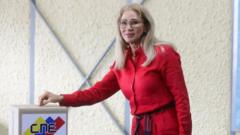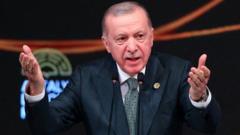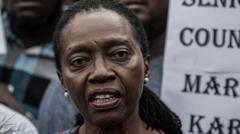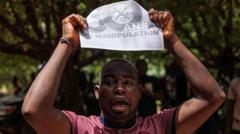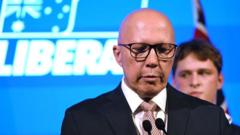The appointment of Faure Gnassingbé as "President of the Council of Ministers" in Togo raises fears that he may rule indefinitely, backed by a recent constitutional reform that abolished presidential elections and established a parliamentary system, consolidating control further within his family’s decades-long regime.
Togo's Leader Positions for Indefinite Rule with New Role
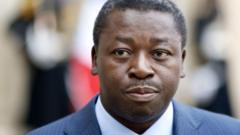
Togo's Leader Positions for Indefinite Rule with New Role
Faure Gnassingbé assumes a powerful new title amid constitutional changes removing term limits, sparking opposition concerns of an extended dictatorship.
Togo's political landscape is shifting dramatically with the recent swearing-in of Faure Gnassingbé as "President of the Council of Ministers," a position that grants him extended authority in the executive branch without specified term limits. This controversial shift comes on the heels of constitutional amendments that have effectively removed presidential elections and introduced a parliamentary governing structure.
The move has drawn sharp criticism from opposition factions who view it as a deliberate strategy to enable President Gnassingbé to maintain power indefinitely. For the past 58 years, his family has been at the helm of Togo’s political scene, with Faure succeeding his father, Gnassingbé Eyadéma, in 2005 after a nearly four-decade reign.
Critics have labeled these constitutional changes an "institutional coup d'état," arguing that they are designed to entrench Gnassingbé's dominance further. Although his government initially suspended some reform proposals following significant public dissent, they have now moved ahead with the enactment of this new role.
Upcoming municipal elections in July are set to be the first held under the new constitution, which has rendered the role of the presidency largely ceremonial. However, political analysts assert that Gnassingbé's influence is more firmly established than before, especially following his party—Union for the Republic—securing a commanding majority in the last parliamentary election, claiming 108 out of 113 seats in the National Assembly.
As the situation evolves, the people of Togo and political observers worldwide will be watching closely to see how these developments unfold within the context of governance and democratic integrity in the region.







